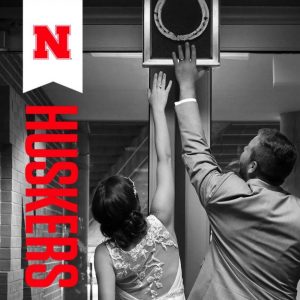English 9 Fall Semester 2016
Today we will…
- Learn about the Argument writing process and be able to complete a 5 paragraph essay following a guided rubric.
- Create a claim statement after reading a story and using examples from various stories to write open and actionable reasons that will allow the writer to make multiple connections.
- Write the first body paragraph that includes a topic sentence, textual evidence (EXAMPLE FROM THE STORY), and examples from your personal experience. Student will be able to reflect on the importance of their examples.
On Your Desk: DCA Claim Statement Brainstorm Handout
After reading the following short stories:
- “Thank You Ma’am” by Langston Hughes
- The Hunger Games by Suzanne Collins
- “The Most Dangerous Game” by Richard Connell
- “Cinderella” by Jacob and Wilhelm Grimm
Answer the prompt – What is the most influential motivator?
Your response should address three stories and your personal experiences. Use your resources from this unit to create your claim statement.
Work Time Break Down:
Monday: Introduction
Tuesday: Claim Statement/Graphic Organizer
Wednesday: Lab Work Day 1 (Introduction, 1st Body Paragraph)
1- 101
4-Lab Cart
6-103
7-103
Thursday: Lab Work Day 2 (2-3 Body Paragraph)
Friday: Lab Work Day 3 (Conclusion, Revision)
Final Essay due Friday, October 14th (submitted during class time)
Tuesday, October 11th
Today we will…
- Learn about the Argument writing process and be able to complete an essay following a guided rubric.
- Begin the writing process by creating a claim statement after reading a story and using examples from various stories to write open and actionable reasons that will allow the writer to make multiple connections.
On Your Desk: DCA Claim Statement Brainstorm Handout
After reading the following short stories:
- “Thank You Ma’am” by Langston Hughes
- The Hunger Games by Suzanne Collins
- “The Most Dangerous Game” by Richard Connell
- “Cinderella” by Jacob and Wilhelm Grimm
Answer the prompt – What is the most influential motivator?
Your response should address three stories and your personal experiences. Use your resources from this unit to create your claim statement.
Work Time Break Down:
Monday: Introduction
Tuesday: Claim Statement/Graphic Organizer
Wednesday: Lab Work Day 1 (Introduction, 1st Body Paragraph)
Thursday: Lab Work Day 2 (2-3 Body Paragraph)
Friday: Lab Work Day 3 (Conclusion, Revision)
Final Essay due Friday, October 14th (submitted during class time)
Monday, October 10th
Objectives:
Today we will…
- Understand how to create a claim statement after reading a story and using examples from the plot to write open and actionable reasons that will allow the writer to make multiple connections.
- Spend time in sustained personal reading to create a stronger appreciation for literature.
- Learn about the Argument writing process and be able to complete an essay following a guided rubric.
On Your Desk: a writing utensil, personal reading book
- Opener/Attendance
- 15 minutes – Personal Reading Time (Fill out Blue Personal Reading Log) During this time, if you need to finish your claim statement assessment, you will have about 10 minutes to do so.
- Introduce District Common Assessment: Short Story Opinion Essay
Friday, October 7th
Objectives:
Today we will…
Understand how to create a claim statement after reading a story and using examples from the plot to write open and actionable reasons that will allow the writer to make multiple connections.
Claim Statement Assessment
Thursday, October 6th
Objectives:
Today we will…
- Understand how to create a claim statement after reading a story and using examples from the plot to write open and actionable reasons that will allow the writer to make multiple connections.
- Be able to share opinions about characters in “Cinderella” and back those ideas up with evidence from the story.
- Provide textual evidence (examples from the story) and analyze its purpose (provide your reflection on its meaning).
Yesterday we handed in the group claim statement handout stapled to your original handout for “The Most Dangerous Game” work.
What’s on your Desk: “Cinderella” Handout (Gold), Writing Utensil
Opener: On the half sheet of paper, provide a brief summary of the story, “Cinderella.” Who are the characters? What is the relationship between the characters? What happens? Your summary should be at least 5 complete sentences. Start your summary with…
- In the story “Cinderella” by Jacob and Wilhelm Grimm,
This is building the context of a story. It will help readers understand the story and the characters, even if they haven’t read it.
Today…
- Opener/Attendance
- Share summaries and character descriptions
- Textual Evidence + Textual Analysis: Cinderella Character Description
- Cinderella Claim Statement
Later this week:
- Quiz on Friday, October 7th: Your claim statement assessment will be assessing your understanding of Claim statements (What is a claim statement? What is the purpose of a claim statement? Why should claim statements be open and actionable?) and your ability to create a claim statement on your own.
Wednesday, October 5th
 That exciting moment when you read the objectives and learn we are going to be working on writing more claim statements.
That exciting moment when you read the objectives and learn we are going to be working on writing more claim statements.
Objectives:
Today we will…
- Understand how to create a claim statement after reading a story and using examples from the plot to write open and actionable reasons that will allow the writer to make multiple connections.
- Silently read a story and be able to answer comprehension questions in complete, well thought out sentences.
What’s on your Desk: Both GREEN “The Most Dangerous Game” Handouts (One is YOUR handout; the other is the GROUP claim work), a writing utensil
Opener: Read the claim statement below. Copy it down AT THE TOP of the “Group Claim” Handout.
Example: Natural Instinct is the best influential motivator because it forces people to think quickly on the spot, it limits peoples’ ability to question their decisions, and it helps people survive in dangerous situations.
Circle the TOPIC. Underline the Opinion. Number the THREE reasons.
Today…
- Opener/Attendance
- Complete the Group Claim Work Process/Notes
- Review Assignment due Thursday, October 6: Read “Cinderella” silently to yourself. You will have the rest of class to read the story and answer the questions. The story and these questions will be due by tomorrow. You should use complete sentences to answer ALL of the questions. This WORK will be due at the beginning of class tomorrow.
Later this week:
- Assignment due TOMORROW — Finish reading “Cinderella” and answer the questions
- Quiz on Friday, October 7th: Your quiz will be assessing your understanding of Claim statements and your ability to create a claim statement on your own.
Tuesday, October 4th
(Leaning Objectives) Today we will…
- Spend time in sustained, personal reading.
- Understand how to create a claim statement after reading a story and using examples from the plot to write open and actionable reasons.
Opener: Hand in your GREEN “TMDG” handout. I will be checking these over and giving them back once you are done reading. Get out your personal reading book and the “Personal Reading Log” received today. Spend 15 minutes of personal reading time. At this time, phones and other materials should be put away. In 15 minutes, you will be directed to completing the blue handout — documenting your reading experience.
We will spend the second part of class working on building our understanding of claim statements. Using your Green “TMDG” handout, we will work in small groups to create a strong claim statement that has clear, open, and actionable reasons.
For example: Natural Instinct is the best influential motivator because it forces people to think quickly on the spot, it limits peoples’ ability to question their decisions, and it helps people survive in dangerous situations.
Assignment:
Monday, October 3rd
(Leaning Objectives) Today we will…
- Recognize the use of suspense and foreshadowing in a story and be able to articulate its importance.
- Characterizatino: Analyze the characters Rainsford, Zaroff, and Ivan. Discuss the conflicts between the characters.
- Understand how to create a claim statement after reading a story and using examples from the plot to write open and actionable reasons.
Opener: On your desk should be your GREEN “The Most Dangerous Game” Handout + writing utensil
Write your name on the note-card. Textual Analysis is your ability to reflect on a piece of the story. Why is this moment important? How does this moment impact the story? How does this part of the story make you feel? What connections can you make? Read the quote below. Explain its importance to the story. Include your understanding of suspense and/or foreshadowing in your response.
“Rainsford hesitated. He heard the hounds. Then he leaped far out into the sea…”(Connell 27).
- Opener/Notes
- Conflict: What conflicts exist between the characters? Fill the board with conflicts that occur throughout the story.
- On the back of your note-card, pick one of the conflicts written on the board. Describe the conflict in your own words. Find a passage from the story that best represents that conflict. Be sure to write it in MLA format. Explain the significance of the passage. (Why is this moment/conflict important? How does it impact the rest of the story?)
- claim Statement (Backside of Green Handout)
Assignment: Finish TMDG Handout, due Tuesday, October 4th
Friday, September 30th
(Learning Objectives) Today we will…
- Study the characterization of the characters in a story. Students will use analytical thinking to describe which famous actor or actress should represent the character in the story based on similarities.
- Understand how to create a claim statement after literary analysis of a story.
- Demonstrate the ability to create strong word choice in claim statements.
Opener: On your GREEN handout, CAST THE CHARACTERS Rainsford, Zaroff, and Ivan. What famous actor or actress should play that character in a major motion picture?
- Opener/Attendance
- Characterizatino: Analyze the characters Rainsford, Zaroff, and Ivan. Discuss the conflicts between the characters.
- Claim Statement Practice
Wednesday, September 27th
(Learning Objectives) Today we will…
- Listen to “The Most Dangerous Game” by Richard Connell and be able to differentiate between the characters presented in the story and describe the types of conflict present within the plot.
- Note examples of how the characters are influencing one another (positively or negatively). Assess what type of influential motivator is being utilized.
- Take well organized notes on suspense and foreshadowing.
On Your Desk: “The Most Dangerous Game” stories opened to where we left off. Page 17
Opener: On the TMDG graphic organizer, write the characters we have met so far.
- Attendance/Opener
- Continue listening to “The Most Dangerous Game” (pick up where we left off)
- Begin completing the graphic organizer.
- Notes– Suspense and Foreshadowing
Assignment: Elements of Fiction Quiz moved to next week!
Tuesday, September 26th
(Learning Objectives) Today we will…
- Take well organized notes on characterization and conflict.
- Listen to “The Most Dangerous Game” by Richard Connell and be able to differentiate between the characters presented in the story and describe the types of conflict present within the plot.
- Note examples of how the characters are influencing one another (positively or negatively). Assess what type of influential motivator is being utilized.
On Your Desk: Elements of Fiction Skeleton Notes, Writing utensil, Blank piece of paper for writing. Label this paper “The Most Dangerous Game” reflection.
Opener: Today, we will be reading “The Most Dangerous Game.” On your loose-leaf piece of paper, label today’s date. Describe the most dangerous game you can create. Take a board game, card game, sport, or activity that you like to play, and change the criteria to make it the most dangerous game to play.
- Opener/Attendance
- Notes on Characterization and Conflict
- Open your textbooks (Elements of Fiction) to page 13. We will be reading the first part of “The Most Dangerous Game.” You can listen to the audio here.
Assignment: Review notes over elements of fiction (setting – conflict) for a quiz on Thursday.
Monday, September 25th
(Learning Objectives)Today we will…
- Review the components of a claim statement.
- Upgrade the word choice in the reasoning of our claim statements to demonstrate action and purpose.
- Be able create more effective claim/thesis statements in our writing by focusing on the three reasons.
- Take well organized notes on elements of fiction and literary devices.
On Your Desk: English 9 Notes, Writing Utensil, Elements of Fiction skeleton notes (last Thursday)
Opener: Read the following claim statements. Which claim statements best demonstrate your understanding of a claim statement?
- The strongest influential motivator is kindness. Kindness gives people hope in times of desperation, it helps people in need, and it brings two people closer together.
- The best influential motivator is fear. Fear makes people do the craziest of things in the the most unwanted circumstances, it isolates you and slowly takes away all of your hope.
- The greatest influential motivator would be sarcasm. Sarcasm keeps Katniss true to herself when she is aloud to be and, lets her laugh at the realistic horrors of her life.
- The greatest influential motivator is kindness. Kindness shows that there are still good people that care about you. Just the simple fact that you know someone is willing to help you can keep you going.
- The greatest influence motivator is hope. Hope can give people a chance to cherish a desire with anticipation, can help people in hard times, and gives a spark in one’s life to get up and do something with your life.
- The most powerful influential motivator is courage. Courage can help people survive in desperate situations, it can help people protect their loved ones, and it can cause people to stand strong in the face of danger.
Spirit Week Let the Games begin! “And may the odds be ever in your favor” (Collins 8)! Today’s Game: RPS tounament
- Opener/Attendance
- Practice with Claim Statements
- Sample Micro Essays (Claim Statement — 1st Body Paragraph examples)
- Complete notes (click the link to access the notes) on Elements of Fiction/Literary Devices
Assignment: Quiz on Thursday over the Elements of fiction (we will highlight which elements you will be assessed over)
Friday, September 23rd
Today, students will engage part of the writing process by completing micro essays. Given a prompt, students will create an effective claim statement that analyzes the effects of influential motivators. Students will then practice writing body paragraphs by creating topic sentences and providing multiple examples to support the claim.
Students will be completing this mini essay through Google Classroom. These will be submitted by the end of class.
1-103
4-101
6- 152
7- 152
Prompt: Create a claim statement that includes a topic, opinion, and three reasons. Use the prompt: What is the best influential motivator as seen in the Hunger Games.
Then, you should complete your first body paragraph. In your first body paragraph, I should see a topic sentence and at least ONE example from the story + one example from your personal experience. You should use MLA format for all textual examples. Don’t forget the most important part, explaining the reasoning of how your examples support your reason.
Rubric:
| 4 (5 points) | 3 (4 points) | 2 ( 3-2 points) | 1 (1 point) |
| Student responds thoughtfully to the prompt and has created a strong working claim statement. The student uses at least two examples effectively in the first body paragraph.. One example is from the text, one is from personal experience. The student has thoughtfully reflected on the examples. | Student responds to prompt and attempts a claim statement. The student attempts to use at least two examples effectively in the first body paragraph. Student is working towards thoughtful reflection. | Student responds to prompt and attempts a claim statement. There may be missing pieces to the claim. Student needs to include 2 examples. Reflection and analysis is incomplete or unclear. | Student does not attempt or turn in the assignment. |
Thursday, September 22nd
On Your Desk: Hunger Games Handout, Hunger Games Packet, Writing Utensil
Today, students will discuss Chapters 1-2 of The Hunger Games. Students will demonstrate their understanding of the major plot elements and begin analyzing the power of influence working in the story. Then, students will begin to review important Elements of Fiction and Literary Devices through written notes and examples.
Wednesday, September 21st
Students should grab a packet for The Hunger Games. Students should silently read Chapter 2. As they read, they should finish their graphic organizer. They should have this. They should complete the backside, which asks them to label 5 events that happen in the plot. Then, they should answer the last column, describing characters and their influence on others.
Students will keep their Hunger Games Handout!
With about 7 minutes remaining, students should complete the notecard. On their notecard, they should write their name and class period.
- Write a quick summary over Chapter 2. Describe what happened during this chapter.
- What did you accomplish today?
- On a scale from 1-5, how well did you use your class time?
Tuesday, September 20th
On your Desk: Writing Utensil + RGDE Practice Test 2
Today, students will complete the RGDE Practice Test #2. You will have 15 minutes to read the passage and answer the questions. We will review your responses after everyone is complete. When you are finished, read the remainder of Chapter 1 in The Hunger Games. Document 3 quotes in the second box (page 1 of your handout) showing how the characters feel about the District they live in or the government.
Document quotes using MLA format.
“Quote” (Collins).
Collins is the author’s last name for The Hunger Games.
Monday, September 19th
On Your Desk: Claim Statement notes + Blank Piece of Paper (You’ll be handing this in) labeled:
Openers: Creating Claim Statements
Opener: Label your notes with today’s date (9.19.16). Create a claim statement that answers the prompt.
Who is the most courageous person that you know or know of? (You can also describe an occupation).
______________ is the most courageous person I know because _____________________, __________________, and ________________________.
Now, underline the topic. Circle the opinion. Number your three reasons.
Give yourself a rating based on the scale below.
5 points:
5- Claim statement has a topic, an opinion, and three reasons clearly identified.
4- Claim statement has a topic and opinion. There is an attempt at the three reasons, though reasons may be unclear or repetitive.
3 – Claim statement has a topic and opinion. The three reasons are missing or underdeveloped.
2 – Claim statement has a topic and opinion.
1- At least the topic is present in the claim statement.
Today, students will practice writing claim statements. Students will continue to read The Hunger Games to analyze influential motivators throughout chapters 1-2.
(Finish reading chapter 1 — practice quotes/MLA format)
Friday, September 16
On Your Desk: A writing utensil + your notes, Hunger Games Handout from yesterday
Today, students will learn how to write a strong working claim statement in their writing. You will use this knowledge every time you engage the writing process for an essay. Learning how to write an effective claim statement will help organize your writing and will, ultimately, make your writing lives EASIER.
We will also be reading The Hunger Games to analyze the power of influence.
Thursday, September 15th
On Your Desk: A writing utensil! (That’s it!)
Today, students will be completing a practice assessment for the RGDE. Students will learn strategies to identify author’s purpose (Informational, Feature, or Persuasive). Students will begin reading The Hunger Games and complete a graphic organizer to document comprehension and analysis.
Schedule:
- Attendance
- RGDE Practice: On a separate piece of paper, answer the questions on the RGDE practice assessment. Label the questions 1-10 and mark the correct letter response. DO NOT WRITE ON THE TEST.
- The Hunger Games
Wednesday, September 14th
On Your Desk should be your “Definition of Courage” journal. For this assignment, you defined courage in your own words and described the qualities of a courageous person in 5 sentences or more.
Today, students will have an opportunity to assess their responses on the “Thank You Ma’am” quiz. A few students had missing parts, and will have an opportunity to revise their work. Then, students will analyze the definition of courage in a reflective writing activity.
Quiz: Clear your desk of all belongings. Your desk should be empty. I will hand out a different colored writing utensil. You will have a few minutes to fix sections of your quiz that are missing or incomplete. Remember, for the essay, your task is to SHOW THE COMPONENTS OF MLA FORMAT on a quote. Then, explain WHAT PART of the story the quote was happening, followed by the SIGNIFICANCE of this moment. (Why is this part so important?)
Schedule:
- Attendance/Seats(?)
- Review Quiz
- Defining Courage Activity
- Preview Hunger Games
Tuesday, September 13th
Today, students will complete Quiz #1 over “Thank You Ma’am.” This quiz will assess comprehension of the story, understanding of Plot Structure, and ability to reflect on a passage from the story, highlighting MLA structured quotes.
Have your “Thank You Ma’am” questions + reflection on your desk. You will hand this in before the quiz. You will need a pen for this quiz.
Clear your desk of all belongings (except for the writing utensil…).
When you are finished with your quiz, you should grab a Defining Courage handout from the front of the room. Read the prompt and begin defining courage in your own words. This should be in paragraph form.
There should be no phones in class today, even if you are finished with your quiz.
Monday, September 12th
Today, students will spend the first part of class engaging in their choice novels. Most Mondays, students can expect to spend 10-20 minutes reading a novel of their choice. Your desks should be cleared of all other materials.
Remember! This is a text that you selected and, hopefully, enjoy! The purpose of personal reading is to read something that captures your attention and interests. Keep track of what genre of books you like and what topics and themes you are drawn to.
Students will spend the next part of class recalling their understanding of “Thank You Ma’am” (comprehension) and analyzing the power of influence experienced in the short story. Students will learn appropriate MLA format when working with quotes in a written response. Students will review plot structure to prepare for tomorrow’s assessment over the story (characters + plot) and knowledge of the plot elements (definitions and application).
Schedule:
- Attendance/Personal Reading
- Review “Thank You Ma’am”/ Discuss questions (10 points)
- Part 2: Review MLA Format Techniques when working with Quotations.
- Review for “Thank You Ma’am” Quiz tomorrow!
Assignment: Review for your quiz!
- “Thank You Ma’am” characters and plot
- Plot elements + Plot diagram
- MLA format with a provided quote
.
Friday, September 9th
Opener: Review the story “Thank you Ma’am.” You need your notebooks and a writing utensil on your desk.
Today, Students will recall their understanding of plot structure while analyzing “Thank You Ma’am.” Students will continue to analyze author’s purpose to understand the message or moral of a text. Students will evaluate texts to find common themes and be able to articulate those similarities through written reflection and group discussion. (“Day and Night,” “Like Lilly Like Willy,” “Thank You Ma’am”)
Schedule:
- Opener/Attendance
- Re-read “Thank You Ma’am”
- Review the elements of the Plot Structure. Define these terms in your notebooks. You will be assessed (Quiz 1) on the Plot Diagram and “Thank You Ma’am” on Tuesday, September 14th. (Comprehension + Analysis)
- “Thank You Ma’am” Prezi (Looking at Plot Structure of the Story)
- Discuss the guiding questions for Thank You Ma’am.
Assignment: Guiding Questions + Power of Influence due Tuesday, September 14th
Thursday, September 8th
Opener: Analyze the purpose of “Day and Night.” In order to do this respond to the following questions on your 1/2 sheet of paper.
- Rewrite the message of the broadcast in your own words. What message was it sharing?
- How do the Day and Night characters show this message throughout their relationship. Justify how the characters implicate the meaning of the broadcast.
Today, students will analyze author’s purpose to understand the message or moral of a text. Students will evaluate texts to find common themes and be able to articulate those similarities through written reflection and group discussion.
- As a class, read “Like Lilly Like Wilson” By Taylor Mali.
- “Like Lilly Like Wilson” Activity:
- First, listen to the poem being read.
- Now, read the poem to yourself.
- As you hear it a third time, highlight words or phrases that relates to “Day and Night” (Listen Here)
- Choral Reading of Words
3. 1/2 Reflection (2): Compare “Day and Night” to “Like Lilly Like Wilson.” What thematic thread connects the Pixar Short Film to Mali’s poem? Connect the purpose and importance of both messages.
4. Begin reading “Thank you Ma’am” by Langston Hughes. Answer the guiding questions as you read.
Exit Ticket: How does “Thank you Ma’am” connect to “Day and Night” and “Like Lilly, Like Lilly”? What common themes are there?
Wednesday, September 7th
Opener: On your desk, I should see your homework assignment from last night (6 questions following Bloom’s Taxonomy) and your yellow Bloom’s Taxonomy Handout. I will walk around and do a quick spot check of your work.
At the bottom of your homework assignment, respond to the prompt – What is the purpose of using Bloom’s Taxonomy? How does utilizing the higher-order thinking (progression of critical thinking) help you?
Today, students will analyze classmates’ questions through small group discussion and written reflection. Students will also compare “Night and Day” with a poem to analyze purpose and commonalities.
Schedule:
- Opener/Attendance
- Review Small Group Expectations
- Group Share Activity (15 Minutes): Students will get into 6 small groups. Each group will be responsible for a specific question on the Bloom’s Taxonomy Tier. As a group, you will each share your question for that tier. You should discuss what question fits that level of thinking the best and provide a rationale to defend your response. On the note-card: write down your group members’ names, write down the final question (just one) that you wish to share, and explain your rationale why this questions fits the model. Lastly, your group should discuss the answer to your question.
- Each group will share their question and rationale. (10 Minutes)
Tuesday, September 6th
Opener: Get out your yellow Bloom’s Taxonomy handout. You will need a blank piece of paper and a writing utensil. This is all you will need on your desk for today. Look over the different tiers of thinking.
Last week, we began to analyze critical thinking and the influence it has on education and society. After reading Thunder Boy Jr., we looked at various examples of questions following Bloom’s Taxonomy. Today, students will apply their understanding of Bloom’s Taxonomy and the various levels of analyzing material by creating your own questions and leading your own group discussions after watching a Pixar Short Film.
Schedule:
- Opener/Attendance (Question of the Day – If you could create a new name for yourself, what would it be?)
- Discuss Group Work Expectations
- Watch “Day and Night”: Watch the video once without writing anything down. Watch the video for your enjoyment and entertainment. Next, we will watch the video again. This time, write down questions and observations that you think of as you watch the video. You should have at least 5 questions/observations written down.
- As a large group, share your initial questions/observations. Each person should share one question/observation on the board. Using these observations, create questions to analyze “Day and Night.” You should have a question for knowledge, comprehension, application, analysis, synthesis, evaluation.
Assignment: Finish your 6 questions analyzing “Day and Night” using the Bloom’s Taxonomy tiers of higher-order thinking.
Friday, September 2nd
Opener: In your notes, label a section Critical Thinking. Define critical thinking in your own words. What do you think it means to be a critical thinker?
Today, students will build upon their understanding of Ethos, Pathos, and Logos by studying the foundation of Critical Thinking. Students will gain various perspectives of Critical Thinking to help students create their own understanding for what it means to become a critical thinker in the classroom and the world around us. Using Bloom’s Taxonomy, students will put these ideas into action.
Schedule:
- Opener Reflection
- Critical Thinking Presentation {View Here}
- Listen to Thunder Boy Jr. by Sherman Alexie. Discuss the guiding questions that model the hierarchy of Bloom’s Taxonomy and critical thinking.
Thursday, September 1st
Opener: On a separate/blank piece of paper (you will be handing this in), respond to the prompt using complete sentences. I should be able to see the sentence starters in your response. (5 point Reflection)
- Think about the advertisements you have observed in the past 24 hours. Pick one that stood out the most. Describe the advertisement using detail and description to provide imagery for your readers to picture the ad that you saw. Now use the sentence starters to continue your response…
- The purpose of this ad is …
- This ad uses the ___________________________ mode of persuasion (Ethos, Pathos, Logos). This is because… _______________________________.
- I found this ad to be effective/not effective because… (focus on the reasoning)
Students will continue to study the importance of logic in argumentation (writing). By the end of class, you will be able to identify, analyze, and prove that ethos, pathos, and logos are present in our daily influences through advertisement and social media. Check out the prezi to get today’s notes on Ethos, Pathos, and Logos.
Wednesday, August 31st
Opener: Get out your notes/blank piece of paper. (You will be keeping these with you.) On your paper, respond to the prompt. What is the importance of detail and description in your writing? How can you, as the writer, add more details to your writing?
Today, students will study the importance of logic in argumentation (writing). By the end of class, you will be able to identify, analyze, and prove that ethos, pathos, and logos are present in our daily influences through advertisement and social media. Check out the prezi to get today’s notes on Ethos, Pathos, and Logos.
Assignment: Pay attention to the advertisements you experience from now until you return to class tomorrow. Your opener will be to write about an ad you saw or read. You will describe how this advertisement utilized the modes of persuasion.
Tuesday, August 30th
Opener: On your desk should be your Grebigol and the piece of paper you were responding to yesterday (Grebigol Activity). Begin class by describing your Grebigol in as much detail as possible. Label this section 8.30 Opener.
Today, students will define descriptive writing and understand the purpose and power of details through the Grebigol activity and a presentation.
Schedule:
- Opener/Attendance/Seating Chart(?)
- Grebigol Descriptions
- Descriptive Writing Presentation
Monday, August 29th
Today, students will spend the first part of class engaging in their choice novels. Most Mondays, students can expect to spend 10-20 minutes reading a novel of their choice. Your desks should be cleared of all other materials.
If you do not have a choice novel, grab the big blue textbook under you desk. Read a short story from the book. On a blank piece of paper, write the title of the story, the page number, and a brief summary over what you read.
Schedule:
- Check for Books/Attendance
- Personal Reading 15 minutes
- Grebigol Activity (Descriptive Writing Activity)
Friday, August 26th
Today, you will finalize your Benchmark Narrative DCAs, recreating the experience about a time where you had an influence on another person, either positively or negatively.
You will click SUBMIT on Google Classroom.
At the end of class, students will complete a self-assessment for their own writing process to analyze their effort, engagement, and overall understanding of narrative writing.
Assignment: You should have a Choice Reading Book every time you come to English class.
Thursday, August 25th
Today, you will recreate an experience about a time where you had an influence on another person, either positively or negatively. Be sure to include details, characters, and dialogue in your narrative writing. Remember, a story should have a beginning, a middle, and an end.
Opener: Take a few minutes to think about the prompt on your blue sheet of paper. On the back, brainstorm your ideas and quickly outline the story (simple phrases).
Schedule:
- See Google Classroom
Assignment: Benchmark Narrative Writing
Wednesday, August 24th
Today, students will have personal time to read a self-selected text. At the end of class, we will discuss narrative tips and preview our narrative assignment.
Opener: Have your personal reading book out on your desk. On your sticky note, respond to the prompt: What makes a good story?
Schedule:
- Attendance/Opener
- Personal Reading Time
- Narrative Tips
Assignment Narrative Essay Tomorrow! Mentally reflect on the prompt:
Recreate an experience about a time where you had an influence on another person, either positively or negatively.
**Friendly reminders: Narrative writing is a story. You need to include dialogue, action, and detail. This is a show-not-tell experience.
Tuesday, August 23rd
Today, is Day 2 of L-I-B-R-A-R-Y Orientation! We will be working with the East High Librarians to orient ourselves with the library and computer lab. The resources and skills you will gain today will help you succeed in all of your classes throughout your time here at East and beyond.
Expectations: We will be on RED all day today. Please, do not have your phones out. Give the media center specialists your undivided attention. Please do not talk while they are talking. They have valuable information to give you!
Monday, August 22nd
Today, is L-I-B-R-A-R-Y Orientation! We will be working with the East High Librarians to orient ourselves with the library and computer lab. The resources and skills you will gain today will help you succeed in all of your classes throughout your time here at East and beyond.
Expectations: We will be on RED all day today. Please, do not have your phones out. Give the media center specialists your undivided attention. Please do not talk while they are talking. They have valuable information to give you!
Tomorrow, you will come to the CLASSROOM FIRST.
Friday, August 19th
Today, students will recall the components of narrative writing through small group activity and class discussion. For today’s lesson, think about the things that make stories exciting? What details are important to share? How can we think outside of the box?
Opener: On your note-card from yesterday, write today’s date, and answer the following prompt: Create a list of experiences or conflicts you have endured that would make for an interesting movie. (Essentially, you are recalling memories that stick out to you.)
For example: 1. The time I broke my collar bone playing softball 2. When I got the stomach flu in Mexico 3. Traveling to Chicago with my mom and sister 4. Trying out for the Nebraska Dance Team 5. My first job interview
Schedule
- Opener/Attendance
- Complete 2 Truths + 1 Lie
- Narrative Activity: You will be divided into small groups. Each small group will have a different story-line to consider. Using your story-line, you will have about 10 minutes to write out a story. Each group should have 1 piece of paper with the name of everyone in the group. There should be one designated writer, but each group member should contribute to the plot.
Thursday, August 18th
Today, we are going to complete our Super Powers assignment and discuss the power our positive attributes will have on this class. How will these characteristics influence others? How will these characteristics help me succeed in and out of the classroom. We will spend the second half of class in Lab 152. I will introduce you to Google Classroom and review lab expectations. You will complete a quick letter to me, so that I can get to know you better!
Opener: On one side of your note-card (You will use this card for today and Friday’s opener) label today’s date and your name. Answer the following prompt:
Create a list of words that could be written as a person’s name (First and Last)
Tim Ber Dan Druff Tom Ato Val Entino
Objectives:
- Learn and engage in various classroom expectations that will help students achieve and succeed throughout English 9.
- Generate a list of positive attributes through individual critical thinking and group collaboration that will help students develop a growth mindset and analyze how we can use these attributes throughout the semester.
- Provide information about yourself through your writing to build relationships in the classroom.
Schedule:
- Openers/Attendance
- Review Expectations
- Complete + Collect Super Powers Activity
- Lab 152 — Letter to Mrs. Hartman
Wednesday, August 17th
Welcome! Each day, when you walk into this room, you will check the board to see the expectations for the start of class, the daily learning objectives, a schedule for the class period, as well as the assignment or any other reminders needed to be successful! Remember, the daily opener is posted at the top. Please find your assigned seat from yesterday. Later today, I will need a volunteer to be the class recorder. If you have extra super handwriting, please consider volunteering!
Opener: Get out your blue syllabus from yesterday. Look it over. Are there any questions?
Daily Objectives:
- Learn and engage in various classroom expectations that will help students achieve and succeed throughout English 9.
- Generate a list of positive attributes through individual critical thinking and group collaboration that will help students develop a growth mindset and analyze how we can use these attributes throughout the semester.
Schedule:
- Attendance/2 Truths + 1 Lie
- Complete Super Powers Activity (Part 2)
Tuesday, August 16th
Welcome! Each day, when you walk into this room, you will check the board to see the expectations for the start of class, the daily learning objectives, a schedule for the class period, as well as the assignment or any other reminders needed to be successful! Remember, the daily opener is posted at the top. If you were not here yesterday, please grab a note-card from the front of the room. Write your name on the note-card followed by 2 truths and 1 lie (in any order). We will read these cards throughout the next few days and the class will try and guess which fact is the lie!
Opener: Think About It: Who is your favorite super hero? (attendance question)
Daily Objectives:
- Learn and engage in various classroom expectations that will help students achieve and succeed throughout English 9.
- Generate a list of positive attributes that will help students develop a growth mindset and analyze how we can use these attributes throughout the semester.
Schedule:
- Seating Chart + 2 Truths, 1 Lie
- Syllabus/Expectations
- Super Power Examples
- Super Powers Activity (Part 1)
Monday, August 15th
Welcome to East from Max the Dog!
Please find a seat for today!
Welcome to East High School! This is Mrs. Hartman’s English 9 course. Your schedule may say Ms. Vaggalis.  That would be my maiden name, so you are in the correct room. Please call me Mrs. Hartman! Each day, when you walk into this room, you will check the board and see my website pulled up. Here, you will find the objectives, schedule, and assignment for the day. The daily opener will be posted at the top. You can read the task for the daily opener and begin working. When the bell rings, we will all be in our seats and working on the daily opener task.
That would be my maiden name, so you are in the correct room. Please call me Mrs. Hartman! Each day, when you walk into this room, you will check the board and see my website pulled up. Here, you will find the objectives, schedule, and assignment for the day. The daily opener will be posted at the top. You can read the task for the daily opener and begin working. When the bell rings, we will all be in our seats and working on the daily opener task.
As you walked in today, you were given a note-card and asked to read the board. Please write your name (first+last). Complete the following prompt:
Below your name, write down two truths about yourself and one lie, in ANY order.
For example:
Mrs. Hartman
- I auditioned to be Lil’ Red for the Huskers.
- I played The Grinch in a theatrical production.
- I met Justin Bieber.
You will have a few minutes to write down your two truths and one lie. You will hand these note-cards in on your way out (your exit ticket for today). Throughout the next few days, I will be reading your cards to the class. We will try and guess which ones are true, and which one is the lie! Get creative!
Objective: Get to know the students in the room by having the students complete the two truths and one lie activity.
Assignment: Complete your note-card before the end of class!
Reminders: Remember, 8/15-8/17 are PLC Schedules






